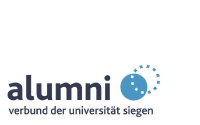Information about "alumni"
Would you like to learn more about the history of "alumni work" or to know where the word "alumni" comes from and what it actually means? How are "alumni networks" helpful? Here you can find answers to frequently asked questions.
What does the word "alumni" actually mean and where does it come from?
Alumnus, m. (Plural alumni), comes from the Latin word for "pupil", it literally translates as "the nourished" from alere, "to feed". An alumnus is also the student of a so-called alumnat (boarding school)
What exactly is meant by "alumni"?
Today "alumni" are defined as graduates of a university of a similar educational institution, or as a scholarship recipient from a funding organisation. When used to refer exclusively to female graduates, the female singular form Alumna, or alumnae in the plural form can be used instead. In day to day use, the term "alumni" is often used very differently depending upon the thematic context and the person's perspective. In a narrower sense, it can refer to a group of graduates from a college or university, or in a broader sense it can be expanded to include everyone who is or was formerly enrolled at a college or university.
What is meant by an alumni network and how has alumni work developed over time?
There is a long tradition of establishing associations of former students (alumni associations) in some European countries, particularly England and France, and also in America. The first alumni associations in the United States were established over 200 years ago. In Germany, their importance has only been recognised since the late 1980s. Social and professional networks are becoming increasingly important for career and personal development. Working with alumni is firmly anchored in the structures of the American university landscape. There, “alumning” means not providing service for alumni, but also enabling alumni to help current students. These intensive kinds of social and academic support result in a high level of engagement with your former university. This often creates lifelong relationships that create a win-win situation for alumni and universities, which in particular provides a basis for research and teaching. In line with the successful alumni work in the USA, numerous German universities are intensifying their alumni activities through the founding of alumni networks, which are often understood as university contact networks bringing together the university community with alumni. Through these networks, alumnae / alumni have the opportunity to maintain and expand social contacts with their university and their former fellow students, as well as to take advantage of further professional and academic training opportunities. Universities that include their alumnae / alumni in academic research and further education as well as in cultural and social activities after graduation can use their experience to unlock potential improvements in research, teaching and university culture.
What are the benefits of the network for alumni & students?
The network enables both alumni and students to engage in "social and professional networking". Existing relationships can be intensified and new ones established. A connection to the university beyond a course of study opens up the possibility for alumni to continue professional and occupational training and to take part in cultural and social activities.
How does the network benefit the university?
The knowledge and practical experience of alumni are of particular importance for the further development of research and teaching. Universities that involve their alumni in academic research and further education, as well as in cultural and social activities after their studies, can use their experience to gain new ideas and methods for improving research, teaching and university culture.

